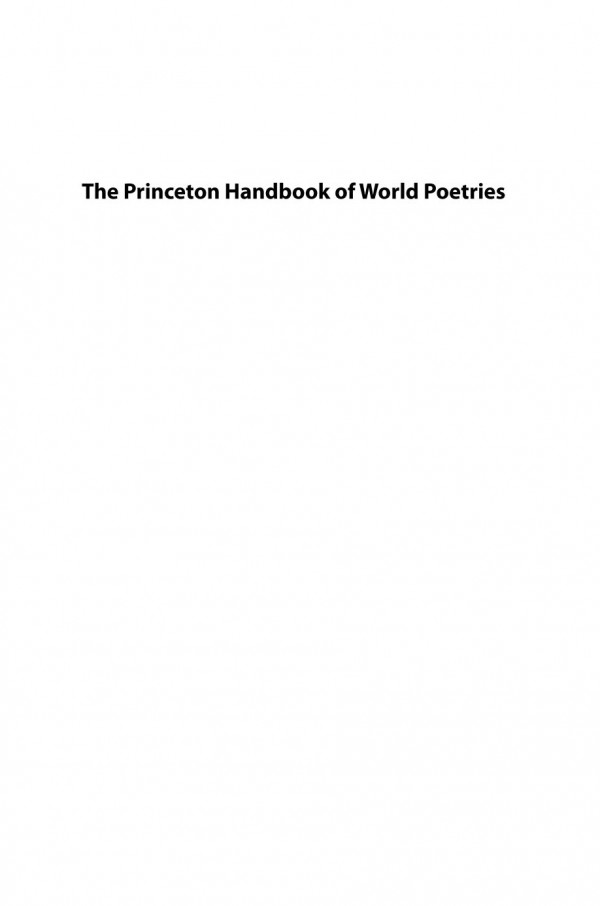

Most ebook files are in PDF format, so you can easily read them using various software such as Foxit Reader or directly on the Google Chrome browser.
Some ebook files are released by publishers in other formats such as .awz, .mobi, .epub, .fb2, etc. You may need to install specific software to read these formats on mobile/PC, such as Calibre.
Please read the tutorial at this link: https://ebookbell.com/faq
We offer FREE conversion to the popular formats you request; however, this may take some time. Therefore, right after payment, please email us, and we will try to provide the service as quickly as possible.
For some exceptional file formats or broken links (if any), please refrain from opening any disputes. Instead, email us first, and we will try to assist within a maximum of 6 hours.
EbookBell Team

4.4
42 reviewsThe Princeton Handbook of World Poetries—drawn from the latest edition of the acclaimed Princeton Encyclopedia of Poetry and Poetics—provides a comprehensive and authoritative survey of the history and practice of poetry in more than 100 major regional, national, and diasporic literatures and language traditions around the globe. With more than 165 entries, the book combines broad overviews and focused accounts to give extensive coverage of poetic traditions throughout the world. For students, teachers, researchers, poets, and other readers, it supplies a one-of-a-kind resource, offering in-depth treatment of Indo-European poetries (all the major Celtic, Slavic, Germanic, and Romance languages, and others); ancient Middle Eastern poetries (Hebrew, Persian, Sumerian, and Assyro-Babylonian); subcontinental Indian poetries (Bengali, Hindi, Marathi, Punjabi, Sanskrit, Tamil, Urdu, and more); Asian and Pacific poetries (Chinese, Japanese, Korean, Vietnamese, Mongolian, Nepalese, Thai, and Tibetan); Spanish American poetries (those of Mexico, Peru, Argentina, Chile, and many other Latin American countries); indigenous American poetries (Guaraní, Inuit, and Navajo); and African poetries (those of Ethiopia, Somalia, South Africa, and other countries, and including African languages, English, French, and Portuguese). Complete with an introduction by the editors, this is an essential volume for anyone interested in understanding poetry in an international context.